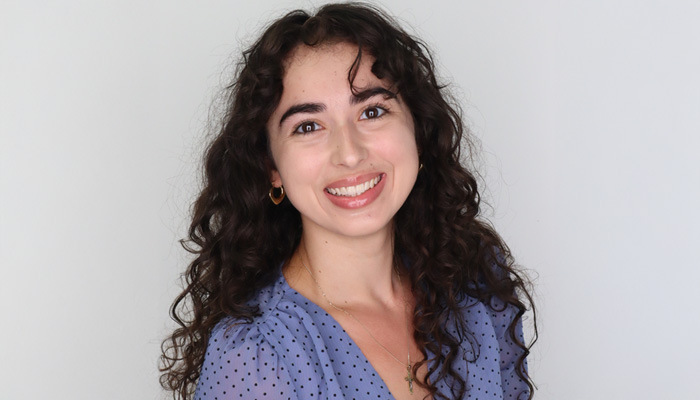Global Undergraduate Awards Spotlight: Diana Urian
The Global Undergraduate Awards recently announced the winning submissions for 2024, which include the following from Western: four Global Winners, four Regional Winners and 20 Highly Commended.

Diana Urian BSc'24
(Neuroscience)
Global Winner: Psychology
Currently pursuing a master’s degree in neuroscience at the University of Ottawa
Paper title: Effectiveness of a Web-Based Neurocognitive Battery for Assessing Executive Function in Alzheimer’s Disease
Please share a description of your research.
The research I submitted involved administering a set of cognitive tests to individuals with Alzheimer's disease to assess their executive functions. When I say ‘executive functions’, I mean complex brain processes that allow people to accomplish desired tasks in an efficient and smooth manner. All of us use a combination of these functions to perform just about anything we do. It’s unclear how these functions are affected in individuals with Alzheimer’s disease. People often think about the disease as one involving memory, which it does, but there is more to it. Recent research is showing that there are other components at play, such as the reduced capacity for planning, inability to inhibit behaviours, or in more severe cases, a lack of awareness about oneself or one’s surroundings. In fact, there is reason to believe that some of these changes occur before memory-related impairments appear. My project stemmed from that body of research. Essentially, we were trying to see if there are specific executive functions that are involved in Alzheimer's disease, as opposed to a general decline in all of them.
Were you always interested in this area of research?
No, I wasn’t always interested in this area of research. My interest toward it developed with time. Growing up, I was surrounded by a physician mom and thought that I might want to follow in her footsteps. This led me to pursue a degree in Medical Sciences, during which I ultimately decided to specialize in neuroscience. I thought if I was going to specialize in anything, mastering the brain would be the most interesting and interdisciplinary thing I could do. Over time, I developed a deep appreciation for applied research, since I found it to be the most effective way to bridge the gap between academic study and real-world impact. My classes and early research exposure revealed to me that basic research simply wasn’t for me. And that’s what led me to join a new lab and work on the Alzheimer’s project I described earlier. I’m currently completing a master’s degree in neuroscience, but I’m working with a lawyer on a project at the intersection of neuroscience, law, policy and ethics. My current research will explore the privacy concerns surrounding emerging neurotechnology to explore the societal implications of science.
What are your future plans?
I’m planning to go to law school when I’m finished my master’s degree. Long term, I want to teach at the university level. That’s always been a big dream of mine. But before I apply to do that, I'm hoping to practice for a bit in the health law sector, serve on ethics committees, and maybe work for the government once I learn French.
What prompted you to apply for the Global Undergraduate Awards?
I wanted to have my work account for something, and I knew that realistically, I wouldn’t have time to publish it before leaving the lab. It was hard to find time to sit down and perfect the writing when I had other projects to finish in the lab, alongside transitioning to this master’s degree. The GUA offered me a chance to get my work out there without needing to go through the regular publishing process. Even if I hadn’t won, I felt it would have been nice to know that at least someone else would see it. Being selected as the Global Winner in my category simply reaffirmed the importance of students actively pursuing opportunities to share their work. It's unfortunate that so much valuable research goes unpublished or unnoticed every year, due to students moving on to new projects. Knowing that someone not only read but also recognized my work was incredibly rewarding. I like to believe it may have even influenced how they perceive the heterogeneity of diseases. At the end of the day, it's all about making people view things differently. I’m not interested in doing research just for the sake of doing research. I want to see it have an impact. That’s ultimately what we research for, right?

